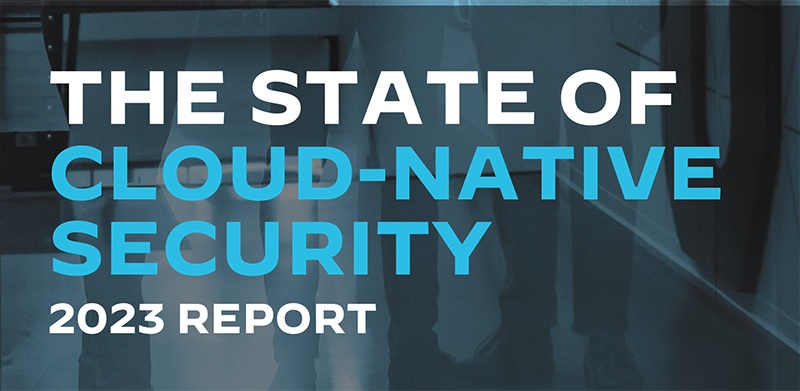webAI and MacStadium(link is external) announced a strategic partnership that will revolutionize the deployment of large-scale artificial intelligence models using Apple's cutting-edge silicon technology.
With organizations of all sizes moving more of their operations to the cloud, a majority are struggling to automate cloud security and mitigate risks, according to the 2023 State of Cloud-Native Security Report(link is external), a Palo Alto Networks survey of more than 2,500 C-level executives around the world.

It's one reason why many companies are trying to improve security earlier in the development process, and looking for fewer vendors that can offer more security capabilities.
Here are some of the survey findings:
Cloud Use Has Grown, Along With Security Concerns
The expansion of hybrid work during the pandemic drove organizations to expand their use of clouds by more than 25%. As a result, DevOps teams are being pressed to deliver production code at warp speed — making application security more complex, and putting pressure on security organizations to keep pace.
Most Organizations are Slow to Detect and Respond to Threats
90% of organizations surveyed said they cannot detect, contain and resolve cyber threats within an hour. Bad actors are working just as fast as developers to take advantage of organizations' vulnerabilities. What could go wrong often does go wrong and any cloud asset that is inadvertently exposed to the internet can be compromised within minutes. Detecting threats in real-time represents the new frontier of cloud security.
Teams Don't Understand Their Security Responsibilities
When asked about the challenges of moving to the cloud, respondents' top concerns remained unchanged from the 2020 report: struggles with comprehensive security, compliance, and technical complexity. A large majority (78%) of organizations said they have distributed responsibility for cloud security to individual teams, but almost half (47%) said a majority of their workforce does not understand their security responsibilities.
A Greater Need for Code-to-Cloud Security
As more applications are being built in the cloud using off-the-shelf software, there's a risk that any vulnerability in the development process could compromise an entire application later on. That's why more companies are encouraging a deeper level of engagement between application developers and security tools and teams — with 81% of respondents saying they have embedded security professionals inside their DevOps teams.
"With three out of four organizations deploying new or updated code to production weekly, and almost 40% committing new code daily, no one can afford to overlook the security of cloud workloads," said Ankur Shah, SVP, Prisma Cloud, Palo Alto Networks. "
As cloud adoption and expansion continues, organizations need to adopt a platform approach that secures applications from code to cloud across multicloud environments."
Moving Towards Consolidation
Three quarters of the leaders surveyed say they struggle to identify which security tools are necessary to achieve their objectives. This has led many of them to implement numerous single point solutions — with the average organization using more than 30 security tools, including six to 10 dedicated to cloud security.
The sheer number of security tools makes it difficult for leaders to have in-depth visibility into their entire cloud portfolio.
76% of survey respondents reported that using multiple security tools creates blind spots that affect their ability to prioritize risk and prevent threats.
And 80% said they would benefit from a centralized security solution that sits across all of their cloud accounts and services.
A Clear Path Forward
Despite the upheaval caused by the pandemic, organizations have mostly been able to succeed in their cloud expansions — and organizations that made cloud infrastructure a strategic focus across the business were generally more successful. This makes cloud security a clear enabler of business outcomes.
Of course better security does not guarantee success. But having security under control — consolidating tools and vendors and using proven DevSecOps and security automation strategies — lets development teams do their jobs better and gives organizations the tools they need to succeed.
Industry News
Development work on the Linux kernel — the core software that underpins the open source Linux operating system — has a new infrastructure partner in Akamai. The company's cloud computing service and content delivery network (CDN) will support kernel.org, the main distribution system for Linux kernel source code and the primary coordination vehicle for its global developer network.
Komodor announced a new approach to full-cycle drift management for Kubernetes, with new capabilities to automate the detection, investigation, and remediation of configuration drift—the gradual divergence of Kubernetes clusters from their intended state—helping organizations enforce consistency across large-scale, multi-cluster environments.
Red Hat announced the latest updates to Red Hat AI, its portfolio of products and services designed to help accelerate the development and deployment of AI solutions across the hybrid cloud.
CloudCasa by Catalogic announced the availability of the latest version of its CloudCasa software.
BrowserStack announced the launch of Private Devices, expanding its enterprise portfolio to address the specialized testing needs of organizations with stringent security requirements.
Chainguard announced Chainguard Libraries, a catalog of guarded language libraries for Java built securely from source on SLSA L2 infrastructure.
Cloudelligent attained Amazon Web Services (AWS) DevOps Competency status.
Platform9 formally launched the Platform9 Partner Program.
Cosmonic announced the launch of Cosmonic Control, a control plane for managing distributed applications across any cloud, any Kubernetes, any edge, or on premise and self-hosted deployment.
Oracle announced the general availability of Oracle Exadata Database Service on Exascale Infrastructure on Oracle Database@Azure(link sends e-mail).
Perforce Software announced its acquisition of Snowtrack.
Mirantis and Gcore announced an agreement to facilitate the deployment of artificial intelligence (AI) workloads.
Amplitude announced the rollout of Session Replay Everywhere.
Oracle announced the availability of Java 24, the latest version of the programming language and development platform. Java 24 (Oracle JDK 24) delivers thousands of improvements to help developers maximize productivity and drive innovation. In addition, enhancements to the platform's performance, stability, and security help organizations accelerate their business growth ...













